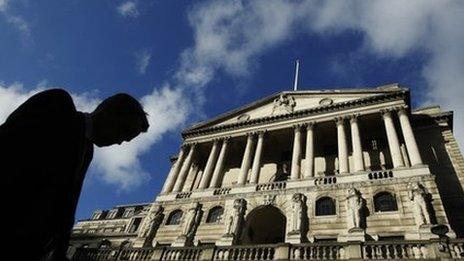Top HSBC manager charged in forex probe
- Published
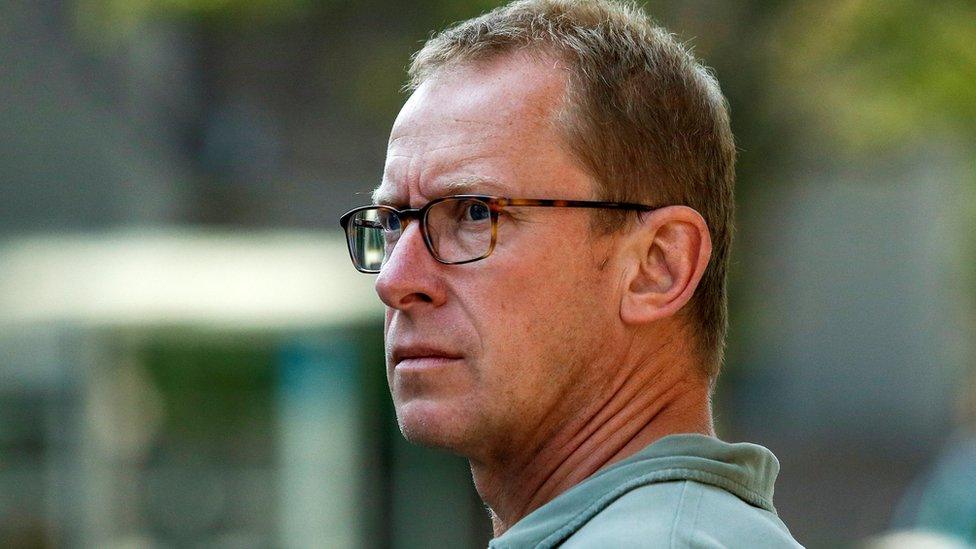
Mark Johnson was released on bail
A top HSBC executive has been charged with fraud in the US.
Mark Johnson, HSBC's global head of foreign exchange trading was arrested on Tuesday night. A former colleague, Stuart Scott, has also been charged.
The two traders are accused by the US Department of Justice (DoJ) of using inside information to profit from a $3.5bn (£2.6bn) currency deal.
HSBC said it did not comment on individual employees or active litigation.
However, a spokesman said the bank was cooperating in the DoJ's ongoing investigation into global currency markets.
Mr Johnson was released on $1m bail following a court hearing on Wednesday. Mr Scott has denied the allegations.
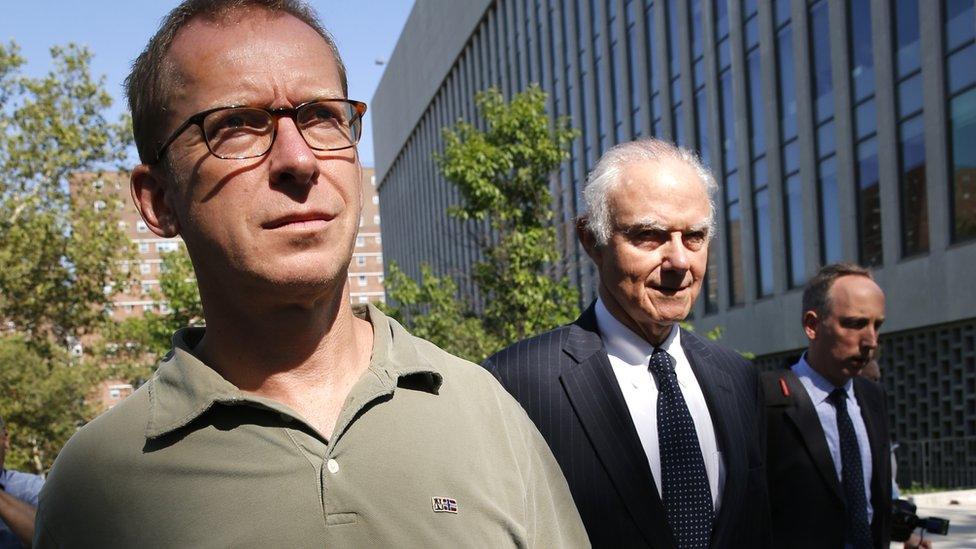
Mark Johnson (left), is a British citizen, but lives in the US
The US Department of Justice (DoJ) accuses the traders of "front-running".
That is misusing confidential information provided by a client who planned to convert $3.5bn into British pounds.
It is claimed that the two executives bought sterling themselves before handling the order, because they knew that such a large transaction would push up the value of the currency, and allow them to make money.
Holding executives 'accountable'
The DoJ also claimed the traders timed the purchase in order to maximise its effect on the value of the British currency. As a result it's alleged they were able to generate significant profits for the bank. They are also accused of concealing their actions from the client.
"The charges and arrest announced today reflect our steadfast commitment to hold accountable corporate executives and licensed professionals who use their positions to fraudulently enrich themselves," said the US Attorney Robert Capers.
US prosecutors cited emails and conversations from Bloomberg chats that indicated the two men plotted to see how high they could raise the the dollar to pound exchange rate before the clients would 'squeal'.
The DoJ said that HSBC brought in roughly $8m profit from the currency trades they conducted for the client.

What is front running?
Front running is an unethical way for a broker to benefit from a client's trade.
When companies or individuals want to buy a substantial amount of currency- for example dollars in exchange for pounds - they typically go through a broker. A large purchase can push up the value of that currency.
Knowing this, the broker can buy dollars on their own account ahead of the deal, carries out their client's transaction, watches the value of dollars rise, and then sells their own dollars at a handsome profit.

Specific charges
In the charges released on Wednesday, the DoJ cites specific trades Mr Johnson and Mr Scott made in late 2011.
In late November and early December of that year, Mr Johnson allegedly purchased pounds in exchange for euros, and pounds in exchange for dollars.
Mr Scott allegedly made a purchase of pounds in exchange for euros.
The two men are accused of then selling their sterling to HSBC, for a profit on the day of the alleged victim's foreign exchange transaction.
The DoJ also accused the two men of encouraging the alleged victim to conduct the trade at a specific time during the day, because it was easier to manipulate the price then.
"It was advantageous to them and HSBC, and disadvantageous to the victim company, to execute the victim company foreign exchange transaction" at the time they did, the DoJ said.
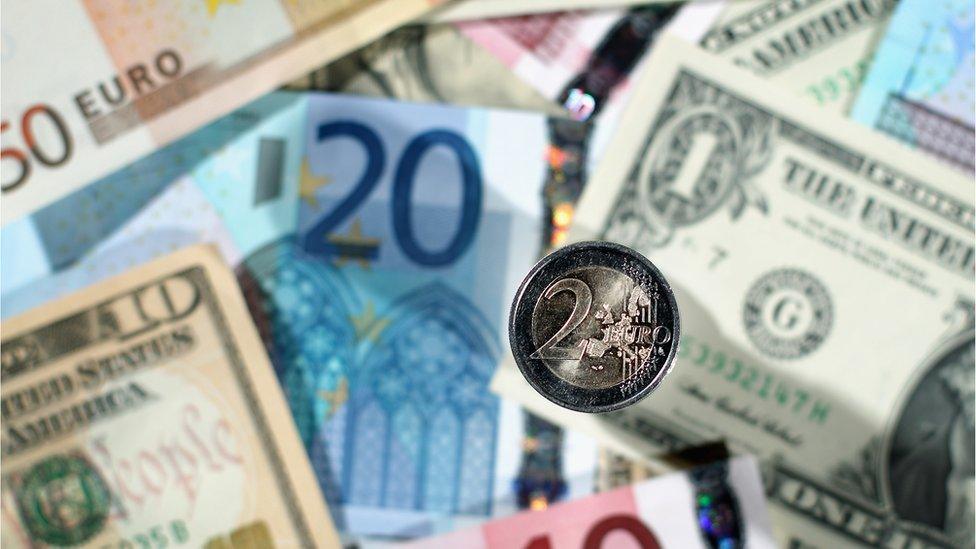
The defendants are accused of using US dollars and Euros to buy pounds driving up the price for their client
This case is related to a three-year long investigation by regulators into rigging of the currency market globally, but is the first time the Department of Justice has brought charges against individuals.
In May 2015, four banks pleaded guilty to conspiring to manipulate the foreign exchange market.
HSBC was not part of those criminal cases, but it was one of six banks fined by UK and US regulators over their traders' attempted manipulation of foreign exchange rates in November 2014.
HSBC spokesman Robert Sherman said the bank was cooperating with the DoJ's continuing foreign exchange investigation.
Forex market
About 40% of the world's currency dealing is estimated to go through trading rooms in London.
The massive market, in which $5.3 trillion worth of currencies are traded daily, dwarfs the stock and bond markets.
There is no physical forex marketplace and nearly all trading takes place on electronic systems operated by the big banks and other providers.
Daily "spot benchmarks" known as "fixes" are used by a wide range of financial and non-financial firms to, for example help value assets or manage currency risk.
- Published20 May 2015
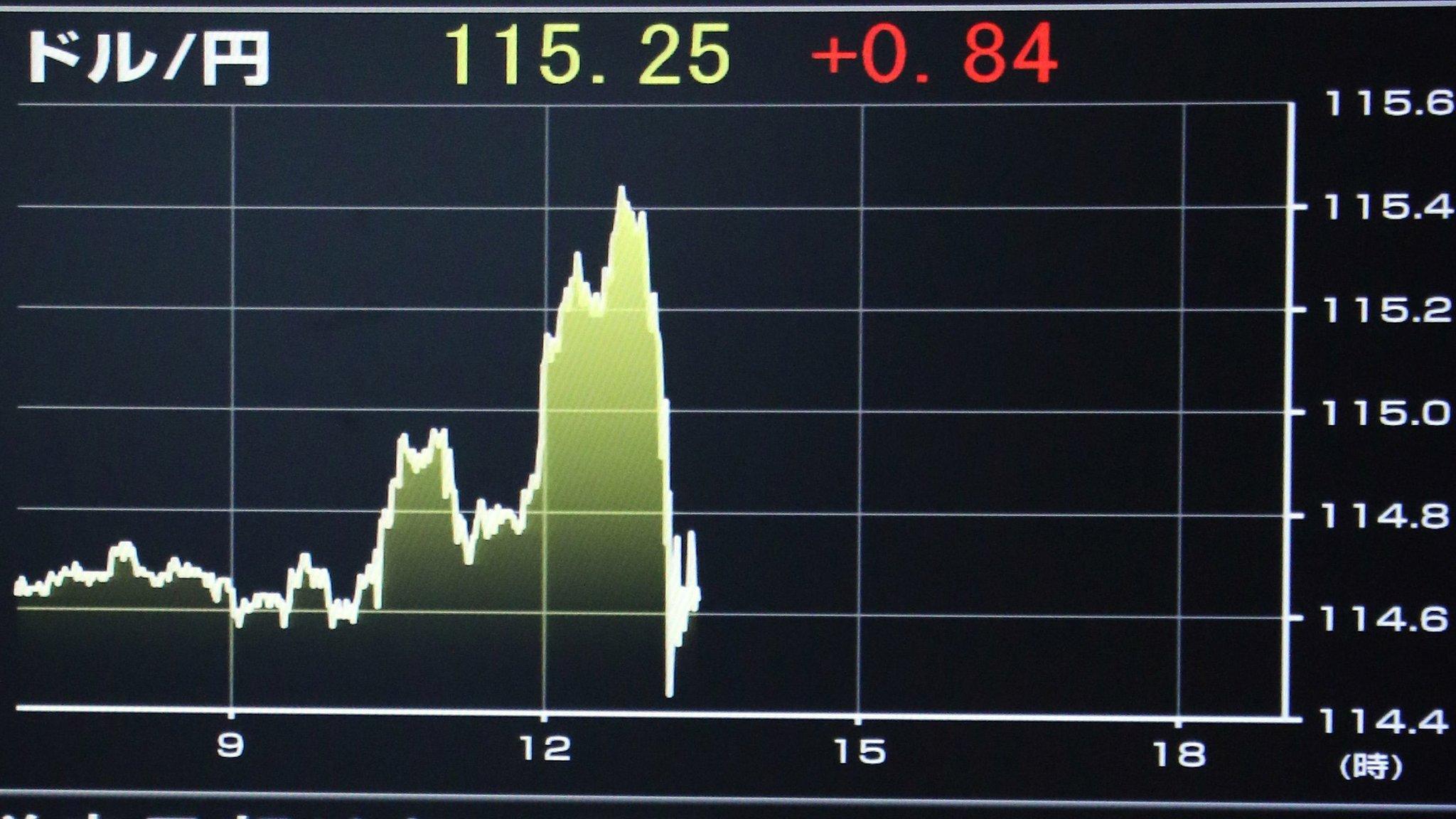
- Published20 May 2015
